Australian bushfire
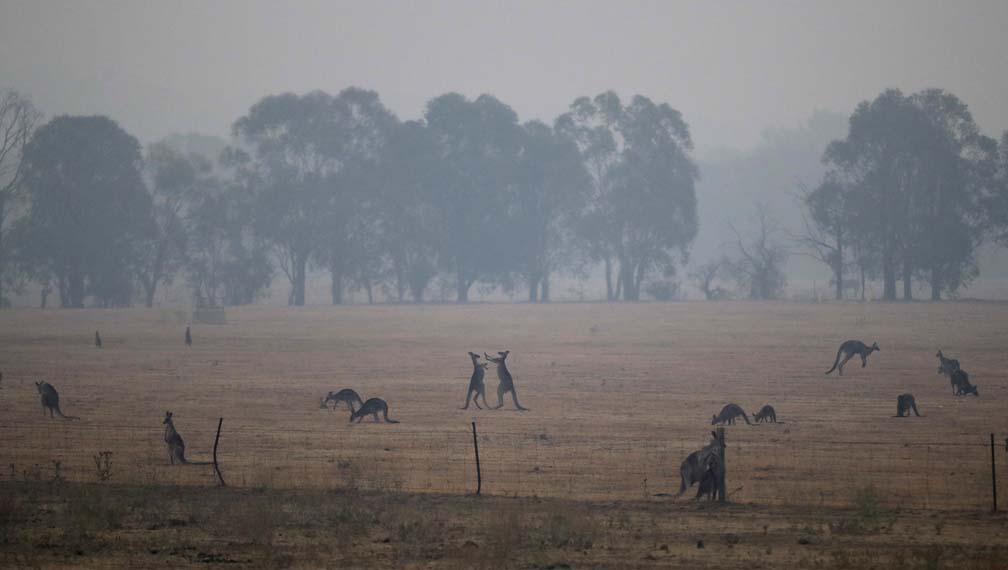
A raging bushfire engulfed Australia’s Kangaroo Island on Jan. 3. For five months, from October 2019 until March 2020, several bush fires blazed all over Australia.
Scientists believe that the destruction wrought by the summer bushfire is unprecedented globally. In January alone, the wildfires razed about five million hectares of land, killing at least 17 people and gutting more than 1,400 homes.
When the fires ended in March, more than 20% of Australia’s forests had been burned. As many as 10,000 koalas—about a third of New South Wales’ total population, perished from the fires and drought.
Taal Volcano eruption
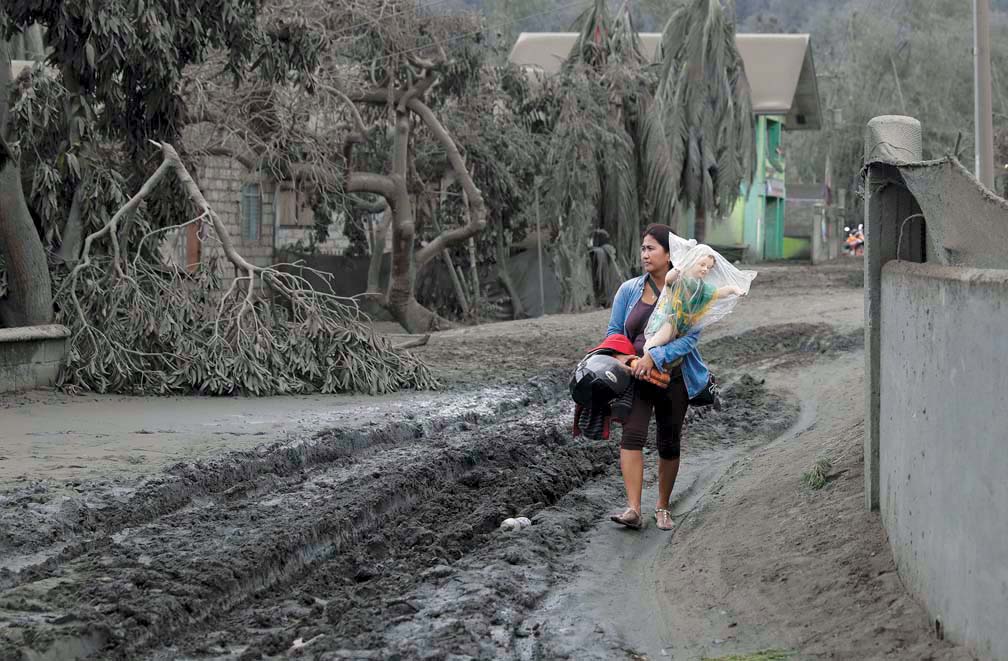
While bushfires raged over Australia’s forests, the Philippines became the site of a volcanic eruption on Jan. 12.
The small but very active Taal Volcano in Tagaytay, Cavite spewed huge plumes of volcanic ash throughout the Calabarzon area and Metro Manila, all the way to parts of Central Luzon, and even as far as the Ilocos Region.
The Philippine Institute of Volcanology and Seismology (PHIVOLCS) reported that the eruption occurred at 1 p.m. from the main crater of Volcano Island. Taal Volcano last erupted 43 years ago, back in 1977.
The extent and degree of the ash fall caused a suspension of classes, work schedules, and flights in the area. Some 2,722 hectares of land were affected. Damage to crops due to the eruption reached P3.06 billion. Taal Lake incurred fish losses totaling P1.6 billion
COVID-19
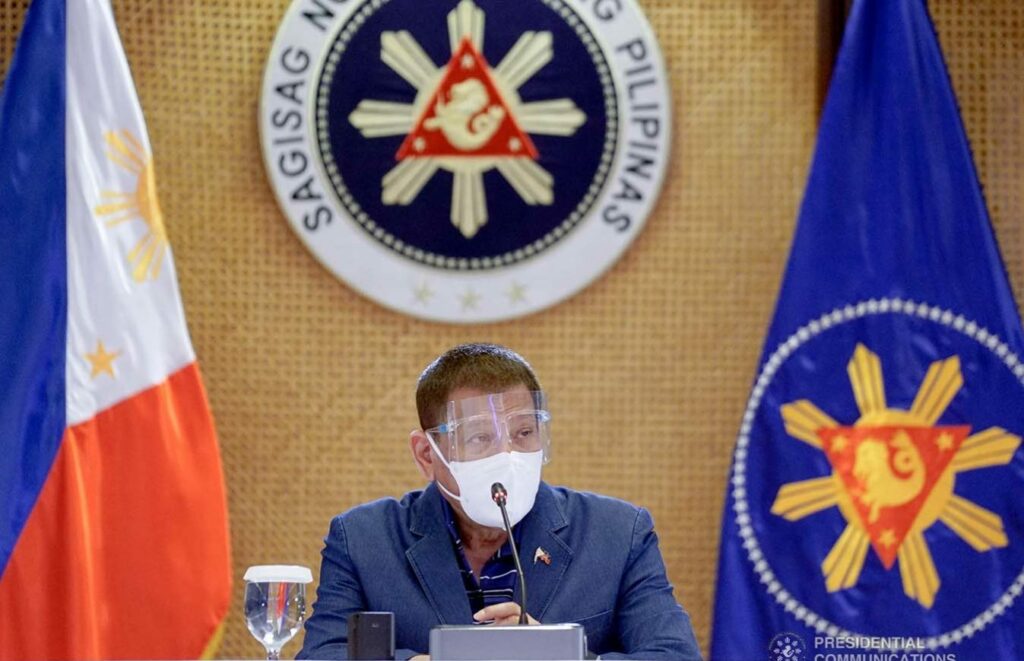
If taken from a political perspective, COVID-19 could be labeled as a “right-wing” virus. By its nature, it successfully clamped down on freedom of movement, freedom of assembly (social distancing), freedom of worship, and even to a certain extent, freedom of speech (because talking can spread the virus).
Since its emergence, governments have banned protests and rallies, for health reasons. And this reasoning, again, because of the nature of the virus, enjoys tacit public support.
COVID-19 has also exacted a huge toll on the economies of the world. Citing information sourced from the International Monetary Fund (IMF), the World Health Organization (WHO) said the COVID-19 pandemic costs an estimated $375 billion a month globally.
WHO director-general Tedros Adhanom Ghebreyesus said in a press conference that the “IMF estimates the pandemic costs the global economy 375 billion US dollars a month, and predicts a cumulative loss to the global economy over two years of over 12 trillion US dollars.”
More than a dozen heads of state have contracted the virus, beginning with Prince Albert of Monaco on Mar. 19 all the way to French President Emmanuel Macron on Dec. 17.
To date, the wealthiest countries of the world have gained access to vaccines for COVID-19. And the governments and the private sector of not-so-wealthy nations are doing what they can to afford the vaccine for their less privileged citizens.
But whether or not these vaccines will spell the end of the pandemic is still anybody’s guess.
Kobe Bryant

The news hit hard basketball fans around the world. National Basketball Association (NBA) superstar Kobe Bryant died in a plane crash on Jan. 26. A shooting guard, Bryant spent his entire 20-year career with the Los Angeles Lakers in the NBA.
Philippines announces termination of the Visiting Forces Agreement
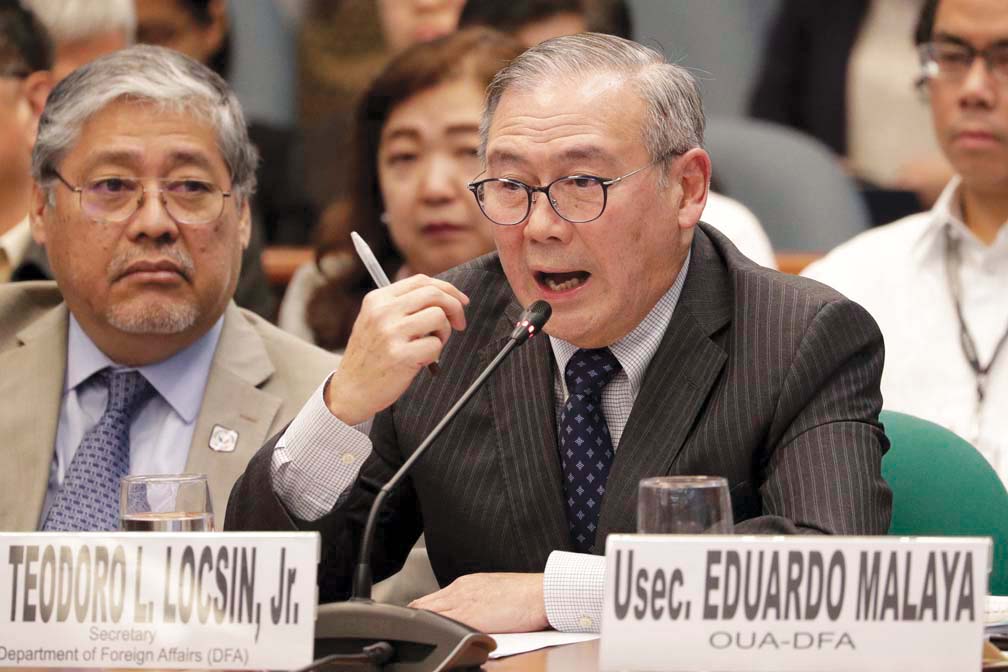
On Feb. 11, the Philippines formally notified the United States that it would end the Visiting Forces Agreement (VFA), a major security pact allowing American forces to train in the country. Political analysts say it is the most serious threat under President Rodrigo Duterte to the 69-year treaty alliance.
Four months later, in June, Pres. Duterte suspended the termination of the VFA for six months due to the COVID-19 pandemic. The suspension was extended for another six months, as announced by Foreign Affairs Secretary Teodoro Locsin, Jr.
Some aver that the turnabout of the President was influenced by the country’s need for American support to access US-made COVID-19 vaccines. Others claim the same circumstances led to the absolute pardon granted by the President to US Marine Lance Cpl. Joseph Scott Pemberton after serving six years in detention for killing Filipino transgender woman Jennifer Laude.
Virra Mall hostage crisis
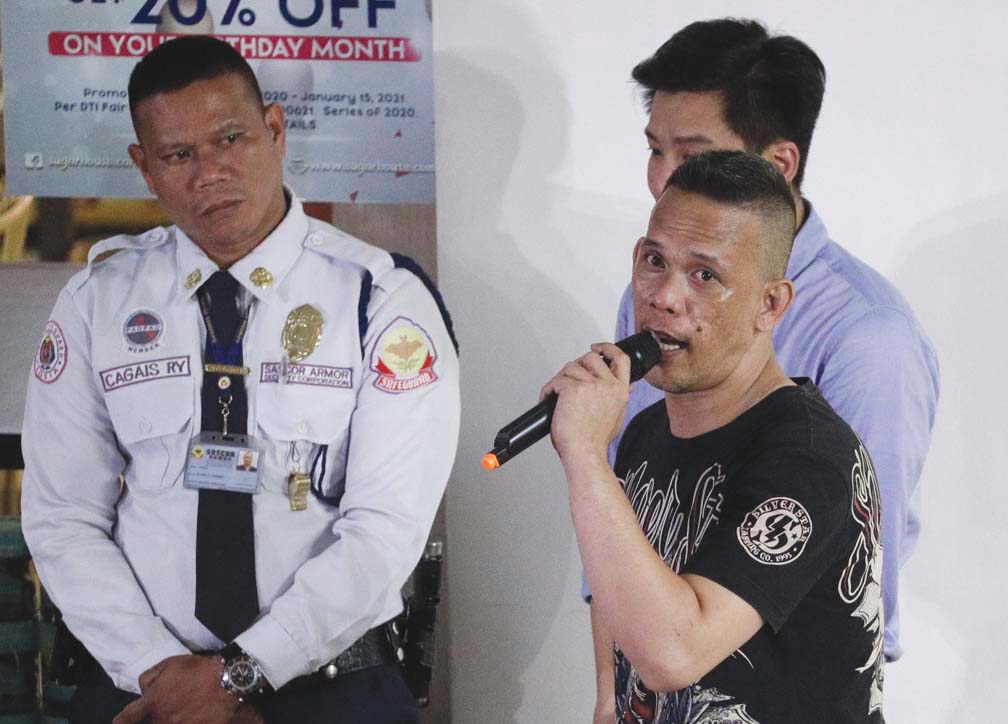
The 40-year-old former security guard said he only wanted to air his grievance against his former employees. To stress his point, Alchie Paray, who used to work at the Greenhills shopping mall complex in San Juan, hostaged for almost 10 hours some 40 people working at the second floor of Virra Mall. Paray was allowed to tell his story to the media and was arrested after he freed his hostages.
ACROSS THE GLOBE, WORLD LEADERS CONTRACT THE NEW CORONA VIRUS
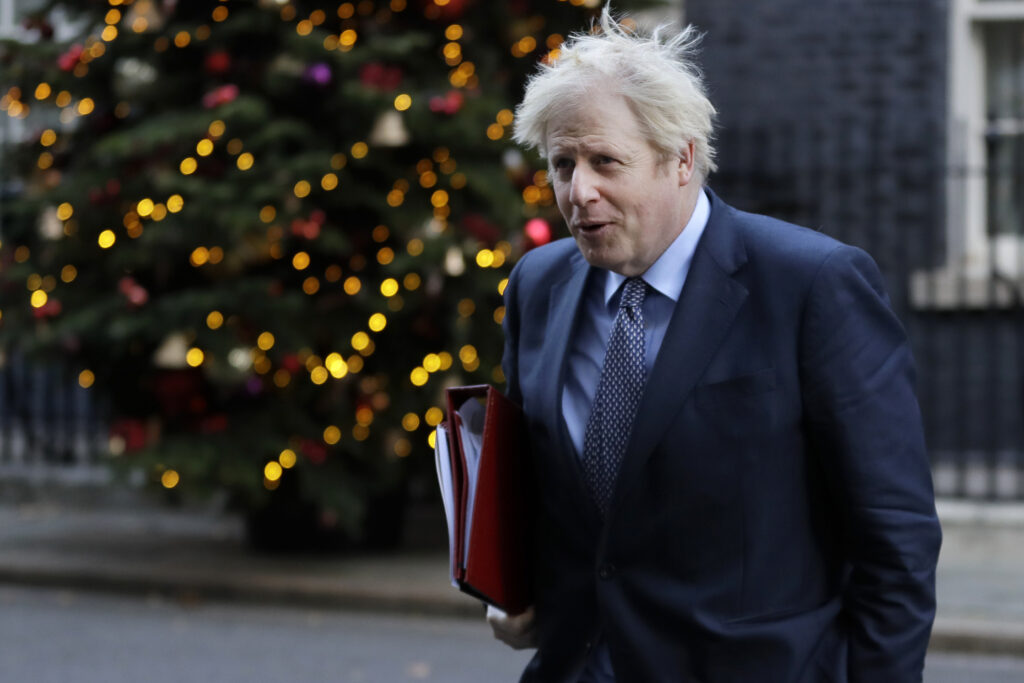
• March 19 Prince Albert of Monaco is the first head of state to publicly confirm that he contracted COVID-19
• March 27 British Prime Minister Boris Johnson
• March 25 Prince Charles
• April 30 Prime Minister of Russia Mikhail Mishustin
• June 1 Nikol Pashinyan, Prime Minister of Armenia
• June 11 Newly-elected Dominican Republic President Luis Abinader
• June 16 Juan Orlando Hernández, President of Honduras
• July 7 Jair Bolsonaro, President of Brazil
• July 9 Jeanine Añez, President of Bolivia
• July 28 Alexander Lukashenko, President of Belarus
• Sept. 18 Alejandro Giammattei, President of Guatemala
• Oct. 2 Donald Trump, President of the United States
• Dec 17 French President Emmanuel Macron
IN ADAPTING TO THE VIRUS, THE WORDS “VIRTUAL” AND “ONLINE” BECAME A LARGE PART OF THE WORK ENVIRONMENT
Last April, the Supreme Court conducted its first-ever, online special en banc session—the first time it happened in its 119-year history.
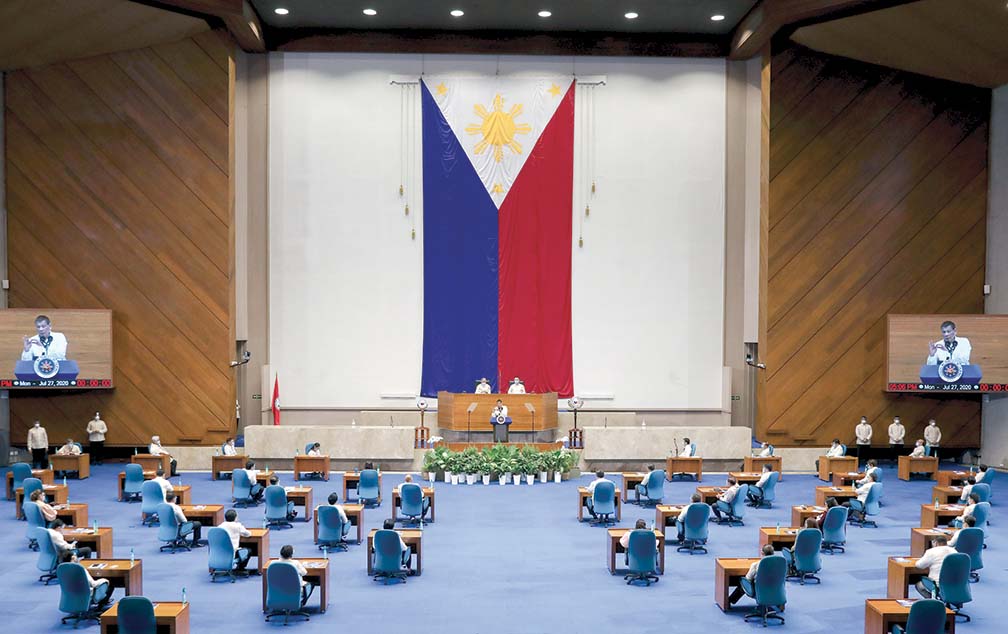
In Congress, 15 senators filed a resolution amending the Senate rules on plenary sessions and committee hearings. The amendment now allows teleconferences where Senators may attend sessions and hearings via Zoom.
Even high-profile protests have gone virtual. On May 1, some 30,000 to 50,000 organized workers attended the Labor Day activities of Sentro ng mga Nagkakaisa at Progresibong Manggagawa.
Nagkaisa labor coalition chair and Federation of Free Worker (FFW) president Sonny Matula said the numbers overwhelmed him. “Our May 1 commemorations would command between 10,000 to 15,000 workers. Now we have triple the number.”
Matula said that in the face of the pandemic, government should respect labor rights and ensure better healthcare for workers. He urged government to augment wage subsidy and guarantee income for workers.
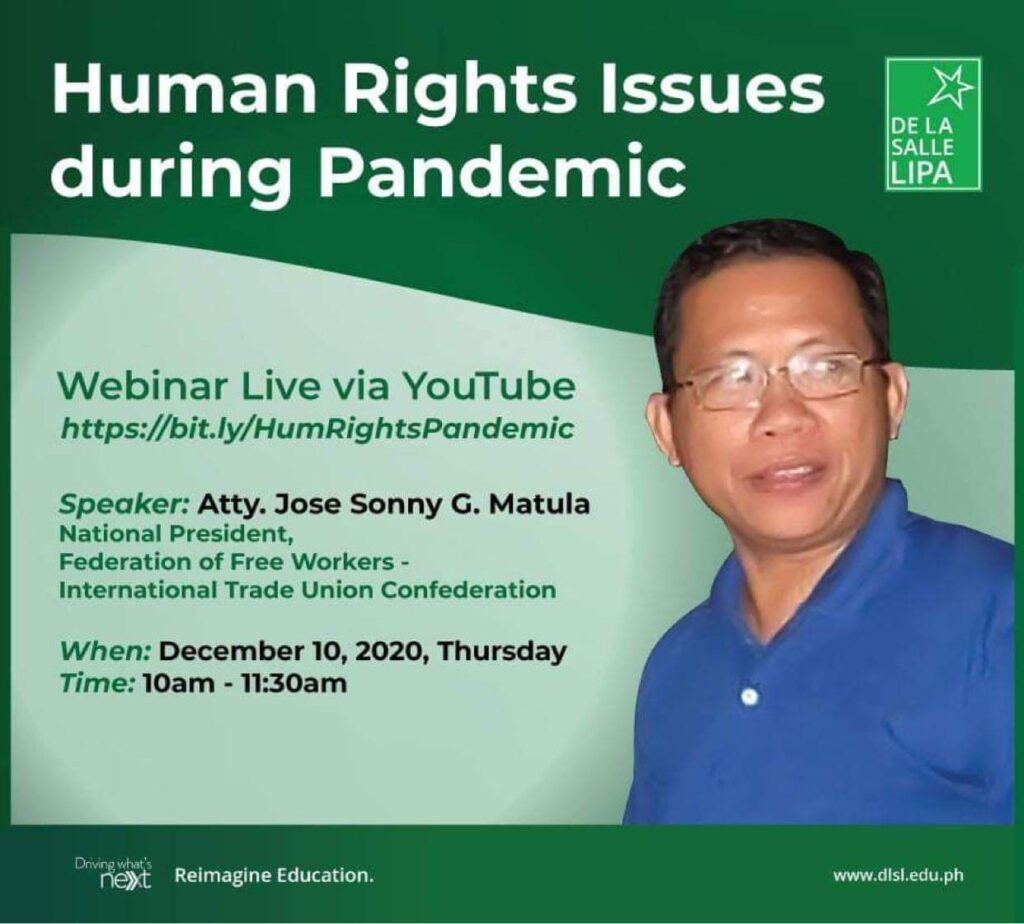
More labor issues cropped up in relation to the pandemic. Early on, the Philippine Overseas Employment Administration (POEA) issued a deployment ban on doctors and nurses that was upheld by the Inter-Agency Task Force on Emerging Infectious Diseases (IATF-EID) on April 2. The ban was to be enforced while the pandemic put undue strain on the country’s healthcare system.
Various labor groups urged the government to reconsider the ban. They said that instead of a sweeping ban on deployment abroad, the government should hire health workers—not as volunteers—but as regular workers.
The government officially lifted on Dec. 8 the temporary ban on the deployment of nurses, nursing aides and nursing assistants abroad.
ABS-CBN FRANCHISE
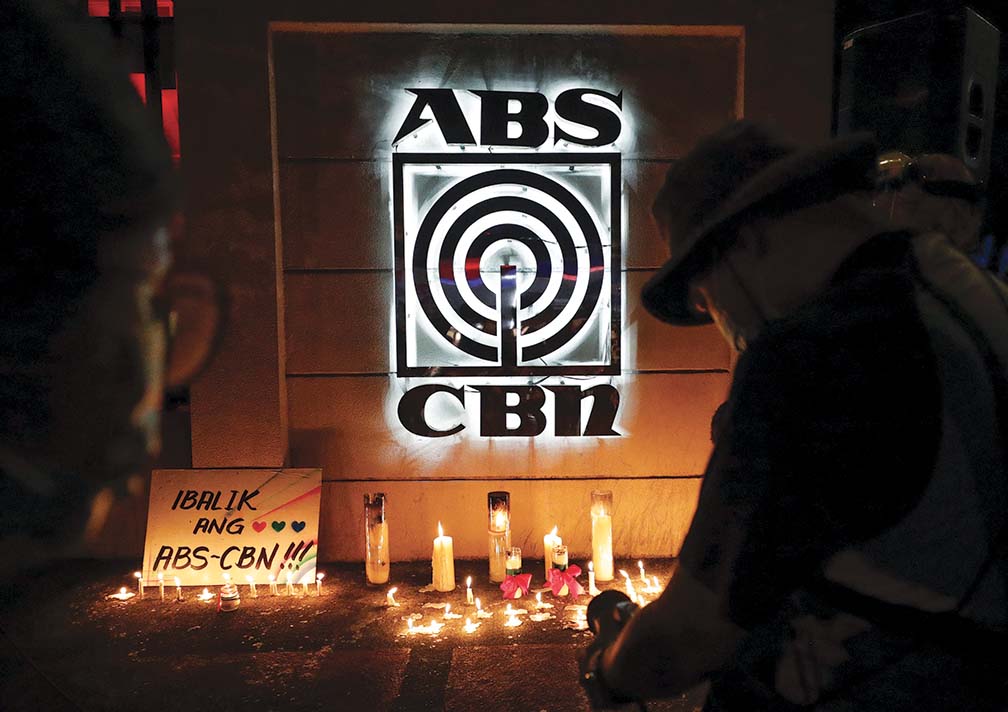
The radio and television franchise of ABS-CBN expired on May 4. Presidential Spokesperson Harry Roque said the government will implement whatever the NTC decision will be on the fate of the media giant.
Three months before, in February, some 17 senators already expressed their support for a franchise renewal for ABS-CBN. However, because of the rules set by Congress, these senators will not be able to vote on the franchise of ABS-CBN until a bill seeking to extend it for another 25 years has been approved by the House of Representatives and transmitted to the Senate.
While waiting for the House to come to a vote on the matter, the Senate public services committee began holding hearings on the contentious issues surrounding the franchise renewal of ABS-CBN.
Also in February, Pres. Rodrigo Duterte, through Spokesperson Harry Roque, said he already accepted the apology of ABS-CBN over the unaired Duterte campaign ads during the 2016 presidential election. Roque insisted that the President is neutral with regards to the franchise renewal of ABS-CBN.
On May 5, the National Telecommunications Commission (NTC) ordered ABS-CBN to stop its broadcast operations owing to its expired franchise. The NTC gave the media station a 10-day window to explain why it should not recall its occupied frequencies.
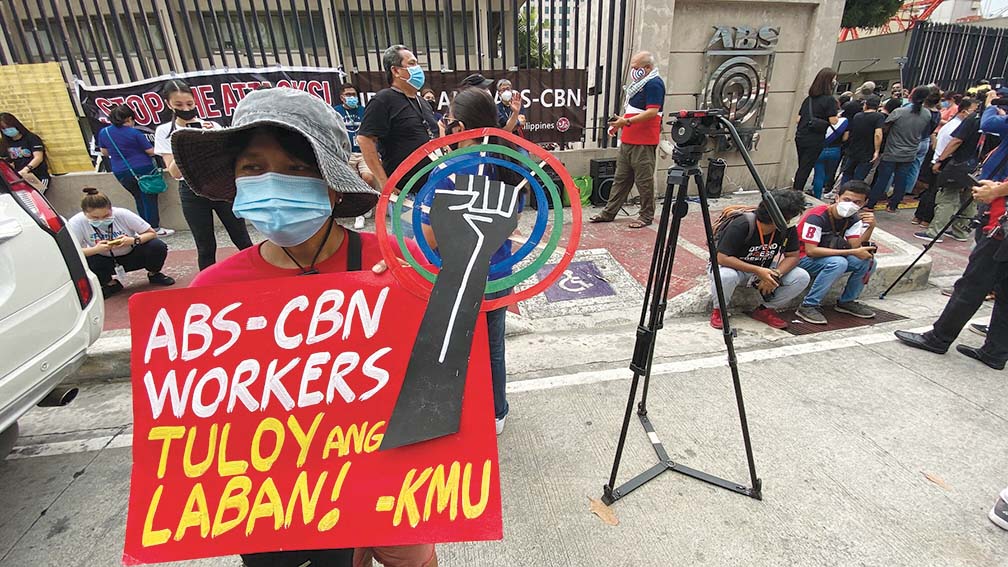
ABS-CBN signed off the air its broadcasting operations on May 5 because of the cease and desist order issued by the NTC who said the station’s March 30, 1995 franchise had already expired.
The militant media group National Union of Journalists of the Philippines (NUJP) branded the closure of ABS-CBN as an “underhanded assault on freedom of the press and of expression.” Labor groups condemned the NTC directive. A rally made up mostly of ABS-CBN contract film and TV stars, led by actress Angel Locsin, also protested the NTC move.
Meanwhile, the House held its first hearing of the ABS-CBN franchise bid. The Committee on Good Government and Public Accountability started the hearing, with Deputy Speaker Rodante Marcoleta accusing the network of violating labor practices. ABS-CBN officials refute the charges, claiming they have complied with all government orders.
For 12 days (from Jun. 1 to Jun. 12) the House held marathon hearings on the ABS-CBN franchise, tackling a range of contentious issues—from the citizenship of ABS-CBN chairman emeritus Eugenio “Gabby” Lopez to its Philippine Depository Receipts or PDRs, alleged labor violations, and block time agreement between ABS-CBN and AMCARA Broadcasting Network. The twelfth and final hearing covered alleged biases in the network’s reporting.
On June 30, the NTC stopped ABS-CBN broadcasts on its TV Plus channels in Metro Manila as well as the services of its Sky Direct. It also called on the network to cease and desist from operating digital television transmission through TV Plus set-up boxes. By July 1, ABS-CBN announced that its TV Plus channels would stop airing outside Metro Manila.
On Jul. 10, after 12 hearings that started on May 26, the House of Representatives, particularly the Committee on Legislative Franchises, voted 70–11 to deny with finality ABS-CBN’s bid for a fresh 25-year franchise.
Within a month since its application was denied, ABS-CBN announced that it would now go full blast on being digital. It launched Kapamilya Online on Aug. 1 for free, without any subscription fee. It offered livestreaming of its programs on online platforms like YouTube and Facebook. In a statement, ABS-CBN said “Kapamilya Online” is the newest home of the channel’s top rated shows.
On Aug. 25, the Supreme Court dismissed ABS-CBN’s petition challenging the NTC’s cease and desist order that forced the station to shut down its broadcast operations on May 5.
Within two weeks, the NTC recalled the frequencies assigned to ABS-CBN since the station no longer had a legislative franchise.
Last October, ABS-CBN and ZOE TV Channel 11 entered into a blocktime deal. This signifies the return of ABS-CBN on free TV after it failed to renew its franchise in July.
BRP JOSE RIZAL
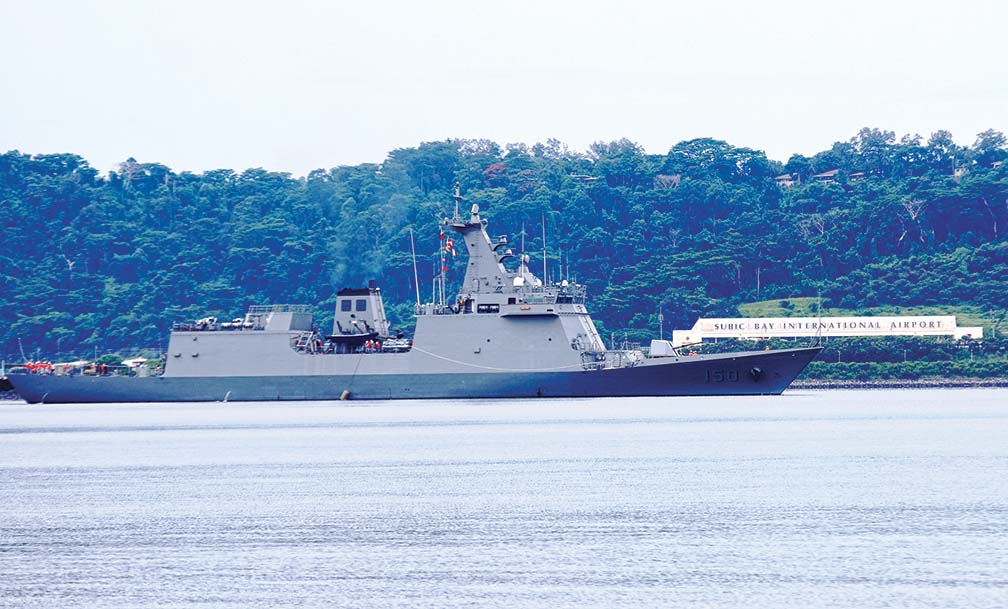
The country’s first missile-capable warship, the BRP Jose Rizal, arrived in Subic, Zambales in May after a five-day maiden journey from South Korea.
The frigate is designed and built by South Korean shipbuilder Hyundai Heavy Industries (HHI).
According to a BusinessMirror report, the BRP Jose Rizal is capable of engaging in four dimensions of modern warfare—Anti-Air Warfare, Anti-Surface Warfare, Anti-Submarine Warfare and Electronic Warfare. It is also equipped with surface-to-surface missiles, surface to air missile and torpedoes.
The frigate’s primary gun is a 76-mm super rapid gun, while the secondary gun is a 30-mm gun. It also has chaffs and decoys as defense against incoming missiles.
BLACK LIVES MATTER
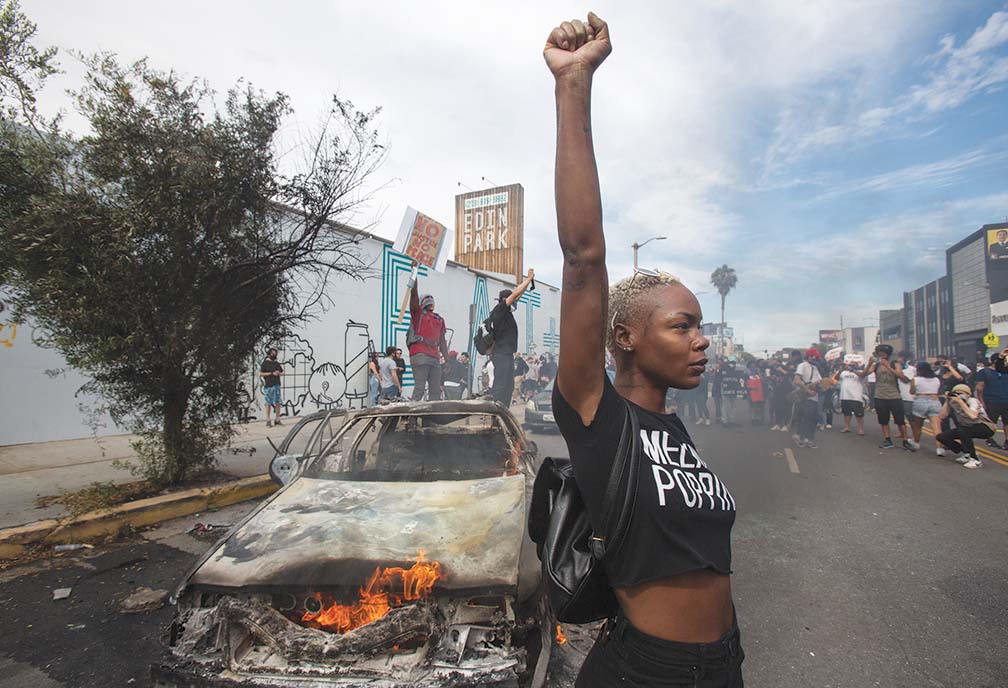
For a little more than eight minutes, 17-year-old Darnella Frazier held up a phone camera to video record Minneapolis police officer Derek Chauvin kneeling on the neck of George Floyd, a 46-year-old African American.
The camera caught Floyd’s pleas for mercy that was ignored by Chauvin, until Floyd died.
HUMAN RIGHTS, “RED TAGGING” AND RED “IDENTIFYING”
The United Nations Office of the High Commissioner for Human Rights (UN-OHCHR) released on the first week of June a report stating that “a heavy-handed focus on countering national security threats and illegal drugs has resulted in serious human rights violations in the Philippines, including killings and arbitrary detentions, as well as the vilification of dissent.”
The report originated from the office of UN High Commissioner for Human Rights Michelle Bachelet.
Bachelet called on the UN Human Rights Council to consider supporting new accountability measures against perpetrators of extrajudicial killings in the Philippines’ so-called war on illegal drugs.
Even as the report recognized “important human rights gains in recent years, particularly in economic and social rights,” it stated that “the focus on national security threats has led to human rights violations, reinforced by harmful rhetoric from high-level officials.”
Justice Secretary Menardo Guevarra countered that the report’s claims “find no anchor in a system that provides every avenue to examine, establish, and pursue a claim of wrongdoing by a State actor, if such claim is substantiated with facts.”
He added that Pres. Duterte had promised a drug-free Philippines and had discharged this mandate fruitfully, with “widespread support across the country.”

On Aug. 10, National Democratic Front of the Philippines peace consultant Randall “Randy” Echanis was found dead inside a rented house in Novaliches, Quezon City with a stab wound to the back.
Forensic pathologist Raquiel Fortun said during an online media conference that the knife wound in the back is the cause of Echanis’ death, causing injuries to the aorta and the esophagus, producing hematoma or collection of blood in the chest of the 72-year-old NDF political consultant and chairman of the Anakpawis Party-list group.
Leftist groups condemned the slaying of Echanis, noting that Echanis is the 4th NDF political consultant to be killed, after Sotero Llamas, Randy Malayao, and Julius Giron. Louie Tagapia, a neighbor of Echanis, was also killed.
Jose Maria Sison, Communist Party of the Philippines (CPP) founding chairman, blamed Duterte for the Echanis murder. Malacañang immediately denied any involvement in the murder of Echanis.
Exactly one week after the murder of Echanis, on Aug. 17, unidentified assailants shot and killed Human Rights activist Zara Alvarez in Bacolod City.
Human rights organization Karapatan said that Alvarez, a single mother, was a human rights activist. But the assertion was question by Southern Luzon Command (Solcom) chief, Lt. Gen. Antonio Parlade, Jr., who said in a statement that Alvarez had joined the New People’s Army two years ago, until 2015 when she was arrested and then bailed out by Karapatan.
Parlade is the spokesperson of the National Task Force to End the Local Communist Armed Conflict (NTF-ELCAC), a government arm charged by militant groups of “relentless red-tagging activities.”
Makabayan Party-list legislators, during the deliberations for the 2021 national budget, urged that the NTF-ELCAC be defunded and abolished. But the move did not flourish in Congress.
The bicameral conference committee retained the P19-billion proposed funding of the NTF-ELCAC in its approved version of the 2021 budget.
President Duterte has defended the activities of the NTF-ELCAC. During his weekly forum last November, he said: “We are not tagging you, we are identifying you as communists.”
The President identified the Makabayan Bloc composed or the Bayan Muna, ACT Teachers Partylist, Gabriela Women’s Party, and Kabataan Partylist as legal fronts of the Communist Party of the Philippines.
Despite the alleged red-tagging, Kabataan party-list Rep. Sarah Elago was chosen in July as one of the world’s outstanding youth sector politicians by a London-based youth group.
According to CNN Philippines, the annual One Young World Politician of the Year award is organized by the London-based youth leadership organization One Young World.
The award received by Elago is given to individuals between 18 to 35 years old “who are using their positions to have a positive impact on young people in their communities and countries.”

In November, the youngest daughter of Bayan Muna party-list Rep. Eufemia Cullamat was killed in an encounter with the military. Jevilyn Campos Cullamat, cited as a medic of the New People’s Army in Surigao del Sur was mortally wounded after clashing with the 3rd Special Forces “Arrowhead” Battalion of the Philippine Army in Marihatag, Surigao Del Sur.
A month later, in December, police arrested Amanda Socorro Echanis, daughter of slain peace talks consultant Randall Echanis, for alleged illegal possession of firearms and explosives found in her house in Baggao town, Cagayan province.
The young Echanis had her one month-old baby with her at the time of the arrest.
A few days before the nation celebrated Human Rights Day on Dec. 10, the Senate Committee on National Defense and Security wrapped up its inquiry into the alleged “red-tagging” by government authorities of militant groups and left-leaning party-list lawmakers.
Senate Pres. Vicente Sotto III told those accused of being fronts of the Communist Party of the Philippines-New People’s Army-National Democratic Front (CPP-NPA-NDF) to bring their accusers to court by charging them with libel.
On Dec. 8, Pres. Duterte announced there will no longer be any talks of truce with communist rebels for the rest of his term.
Ten days before Christmas, a doctor and her husband were shot dead by two unidentified assailants riding on a motorcycle. Killed were Dr. Rose Sancelan and her husband Edwin Sancelan in Barangay Poblacion, Guihulngan City in Negros Oriental.
Human Rights group Karapatan blamed an anti-communist hit group for the killing, adding that the names of the Sancelan couple were placed on a hit list by the said group.
RAPPLER CHIEF MARIE RESSA CONVICTED OF LIBEL
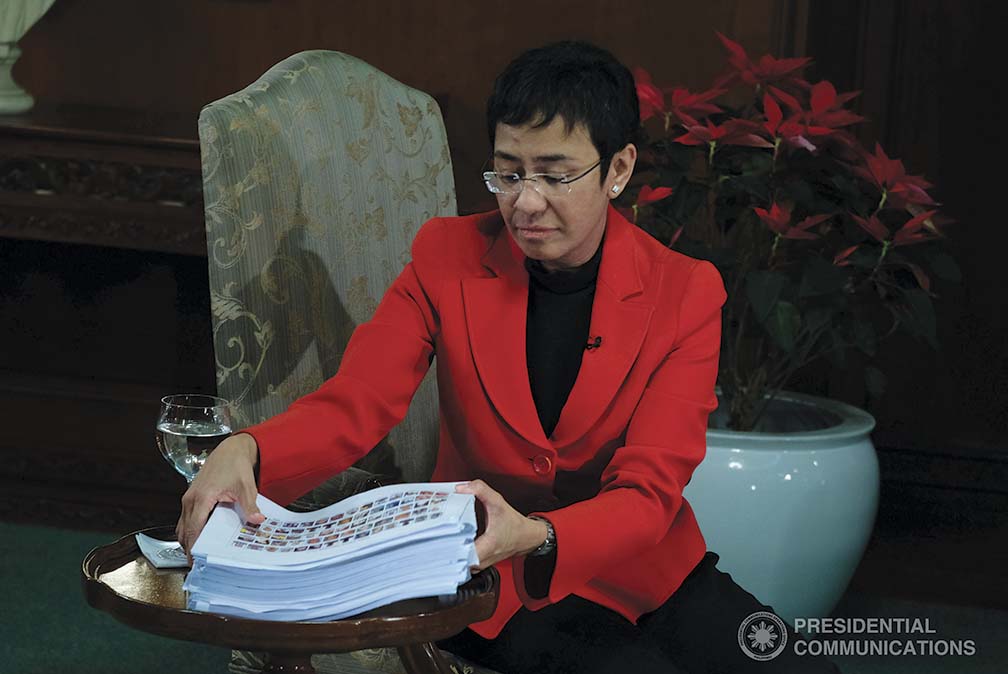
On June 15, the Manila Regional Trial Court Branch 46 convicted Rappler CEO Maria Ressa and former researcher-writer Reynaldo Santos Jr., of cyber libel.
The conviction came as a result of a 2012 Rappler article that linked a businessman to alleged illegal activities. The Trial Court also denied the motion for reconsideration filed by Ressa and Santos on July 25.
About two months later, the Court of Appeals denied Ressa’s motion to travel abroad, stating that the Rappler chief failed to prove the urgency and necessity of her presence overseas.
In September, the European Parliament adopted a resolution calling on the Philippine government to drop the charges against Rappler chief Maria Ressa and to renew the franchise of ABS-CBN Broadcasting Corporation.
AN ARMY-POLICE DEADLY ENCOUNTER IN JOLO, SULU
In June, MGen. Corleto Vinluan, commander of the 11th Infantry Division, reported that four Army intelligence personnel, including two officers, were killed when they were fired upon by policemen in Jolo, Sulu.
According to a CNN report, the police had a different story. The police told CNN that members of the Jolo Municipal Police Station and the Provincial Drug Enforcement Unit Sulu were patrolling Barangay Bus-Bus when they spotted a vehicle with four “armed” men. They were instructed to go to the Jolo Municipal Police Station for questioning. But upon arriving at the station, they allegedly defied the order and fled. What happened next was a chase and a shootout that killed the four soldiers.
In the same report, Vinluan questioned the veracity of the police statement, adding that the four soldiers were unarmed.
Army chief Lt. Gen. Gilbert Gapay called for the sacking of Sulu provincial police commanders for the killing of four Army intelligence officers by policemen in Jolo, Sulu.
He said the four intelligence officers had been tracking two suspected suicide bombers from the Abu Sayyaf Group when police flagged down their vehicle in the afternoon of June 29.
A few days after the shooting incident, Pres. Duterte flew to Zamboanga. In his “Talk to the Troops” Duterte told the soldiers not to let their anger get the better of them.
“Don’t let your anger get the better of you, forgetting that there is a more important task to do and that is to protect the people of the Philippines,” he said.
But terrorist violence continued to plague Mindanao.
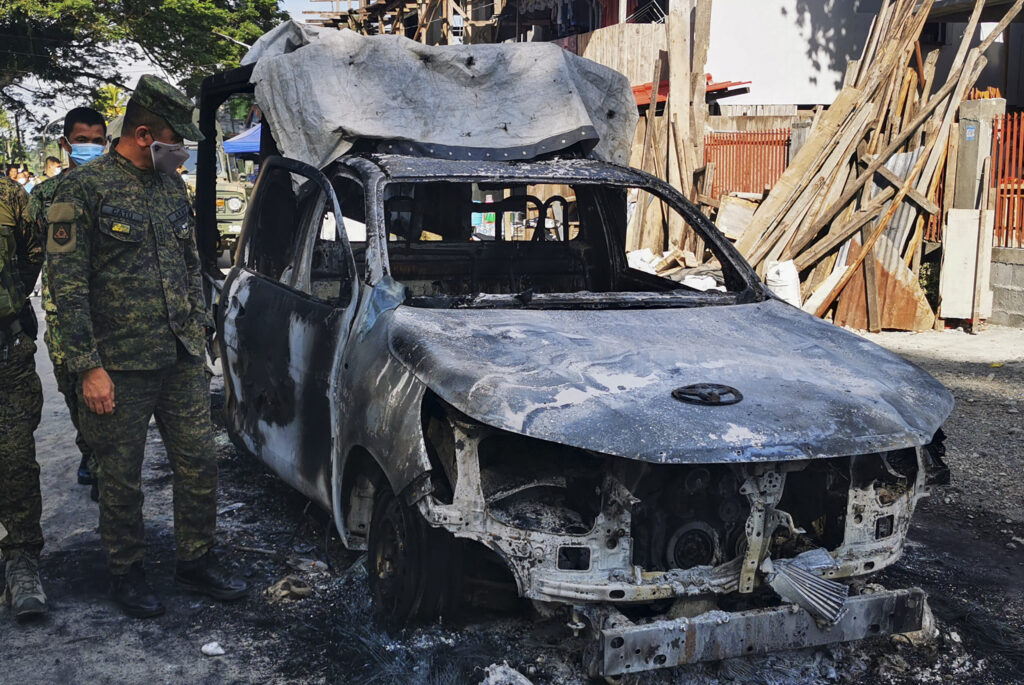
Less than two weeks later, on July 12, militants identified with the Islamic State group opened fire on a Philippine army detachment and burned a police patrol car in a southern town. The militants withdrew after the army returned fire.
Authorities successfully arrested Abu Sayyaf Group (ASG) leaderAnduljihad “Idang” Susukan in Davao City in the second week of August.
More than a month later, on Aug. 24, at least 15 people were killed while 75 others were injured in twin explosions that ripped through Jolo, Sulu
Four months after, on the first week of December, some 50 suspected members of the Bangsamoro Islamic Freedom Fighters and the Dawlah Islamiyah simultaneously attacked a police station and a military detachment in Datu Piang, Maguindanao.
Police reported that the gunmen burned a police patrol car before fleeing. Fortunately, the attack did not incur casualties.
THE ANTI-TERRORISM BILL
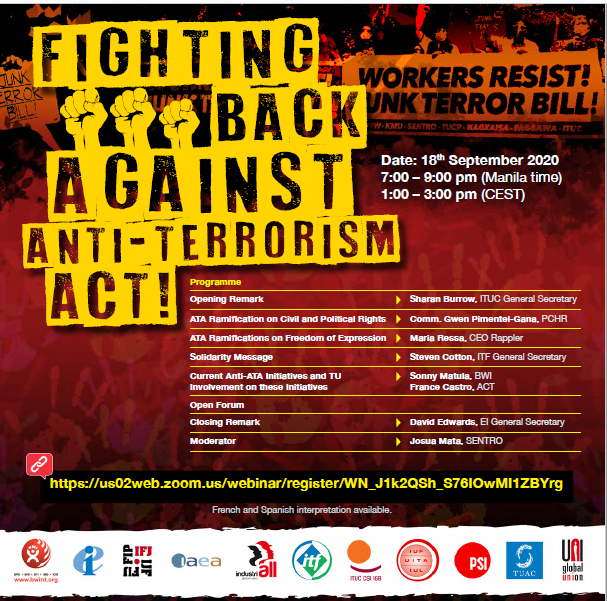
July 3 saw the passage of the Anti-Terrorism Bill into law. According to its proponents, RA 11479 is solely intended to prevent, prohibit, and penalize terrorism in the Philippines. The law replaced the Human Security Act of 2007.
“Much credit goes to President Duterte,” said Sen. Panfilo Lacson, author of the bill, citing the President’s “strong political will” in signing the landmark legislation. In various media interviews, Lacson said the law would boost the country’s drive against terrorism.
In the months before and after its enactment, Republic Act 11479 or the Anti-Terrorism Act of 2020 became the most challenged law at the Supreme Court, with law experts, constitutional framers, academicians, and militant groups saying it should be declared unconstitutional.
As of November, there are 37 petitions against it. The Supreme Court said it will open oral arguments on the petitions questioning the constitutionality of Republic Act 11479 on Jan. 19, 2021.
SONA 2020

President Rodrigo Duterte focused on government response to the COVID-19 pandemic during his fifth State of the Nation Address (SONA).
He said that placing the value of life over all other considerations was a personal decision he made.
Duterte added that the interventions they put in place were essential in preventing the possible infection of more than a million people had these interventions not been carried out.
The President admitted that in the distribution of the Social Amelioration Program (SAP), some took advantage of the difficulties encountered in reaching out to the poor. He warned, however, that government will go after them, including profiteers.
Among the bills he wanted passed were the Bayanihan 2, the government’s stimulus program for the economy and the passage of the Corporate Tax Reform Bill.
PHILHEALTH CONTROVERSY
Public disgust over state-run Philippine Health Insurance Corporation or PhilHealth boiled over in October after the Senate, the Lower House, and the Executive branch conducted their separate probes on its alleged anomalies.
It started in July 23 when new allegations of widespread corruption reached the media and the public. By late July, the Senate and the Lower House had begun their own investigations.
The Senate convened its Committee of the Whole to started a 10-hour probe on the PhilHealth fund mess. At the center of the probe was the controversial Interim Reimbursement Mechanism (IRM) fund and its seemingly questionable releases.
In late August, PhilHealth President and CEO Ricardo Morales resigned after filing medical leave to undergo chemotherapy for his lymphoma.
Immediately after the resignation of Morales, President Duterte appoints former National Bureau of Investigation Director Dante Gierran to Morales’ post.
By Sept, new PhilHealth President and CEO Atty. Dante Gierran, through a memo, ordered the submission of courtesy resignations of officials holding Salary Grade 26 and above. The order was in compliance to a 2019 PhilHealth Board Resolution that reportedly was not implemented by former PhilHealth CEO Ricardo Morales.
According to Gierran, the submission of courtesy resignations were likwise done to give PhilHealth a fresh start.
On Aug. 11, Pres, Duterte forms a task force to investigate corruption allegations concerning PhilHealth officers and personnel, which carried the task of conducting lifestyle checks.
Justice Secretary Menardo Guevarra, chair of Task Force PhilHealth said all PhilHealth officials implicated in anomalous transactions should go on leave. The Presidential Anti-Corruption Commission had earlier recommended the filing of charges against 36 high-ranking and low-ranking officials.
Ombudsman Samuel Martires issued a six-month long preventive suspension against 13 PhilHealth officials.
MANILA BAY SANDS
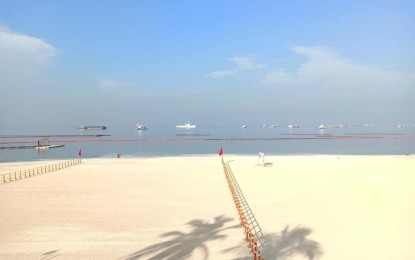
September turned into a verbal joust between government and militant groups over a speck of beach in Manila Bay that was covered in artificial white sand by the Department of Environment and Natural Resources (DENR).
The 500-meter (1,600-foot) stretch of white sand was found, upon close inspection, to be dolomite imported from Cebu.
Environment and militant groups called for a halt on the operation, saying it would harm the environment.
But when the “white beach” was temporarily opened to the public on Sept. 19, hundreds of Metro Manila residents expressed delight and appreciation for the suddenly Boracay-like ambiance of Manila Bay.
SPEAKERSHIP RUMPUS

Once again, the Speakership in the House of Representatives was up for grabs. The last time this happened was during the tussle between then House Speaker Pantaleon Alvarez and then Pampanga Rep. Gloria Macapagal-Arroyo.
That time, the challenge came right during President Duterte’s third State of the Nation Address (SONA) in 2018. Arroyo emerged victorious with the President’s daughter, Sara Duterte, as power player.
This time around, it should have been a peaceful transition of power so-to-speak, if the terms of agreement brokered by Pres. Duterte were honored.
Under this agreement, Rep. Allan Peter Cayetano will lead the House for the first 15 months of the 18th Congress or until October, while Rep. Allan Jay Velasco would assume leadership for the next 21 months.
But when Cayetano chose to challenge the agreement, a ruckus took place. Finally, come mid-October, 186 members of the House elected Lord Allan Jay Velasco as Speaker of the House, again with Presidential daughter Sara Duterte visible in the power play.
In December, the number of deputy speakers at the House of Representatives increased to 30, with many of them allied with House Speaker Velasco.
The deputy speakership is powerful post since the deputy speaker has a voice and a vote in all committees.
LAST QUARTER TYPHOONS

The last quarter of the year was typhoon season for the Philippines. Five typhoons— Typhoons Quinta, Rolly, Siony, Tonyo, and Ulysees—entered and ravaged different parts of the country in quick succession.
Of the five, Typhoon Rolly (international name: Goni) was the strongest, peaking at 265 kilometers per hour. It unleashed torrential rains, violent winds, mudslides, and storm surges that killed at least 17 people.
At its end, Rolly devastated more than two million people in eight of the nation’s 17 regions, with its heavy rainfall, flooding, landslides, and even lahar for those living in the Bicol region.
US ELECTIONS

For Democrats in America, the long night of waiting for Pres. Donald Trump to cease being President of the United States came on Nov. 7, when election returns showed Joe Biden winning as the 46th president of the United States.
But the matter of officially declaring Biden as winner in the elections may still be fraught with controversy as Pres. Trump refuses to concede, protesting the results of the elections as early as Nov. 4
AFTER EVERYTHING, STILL POPULAR
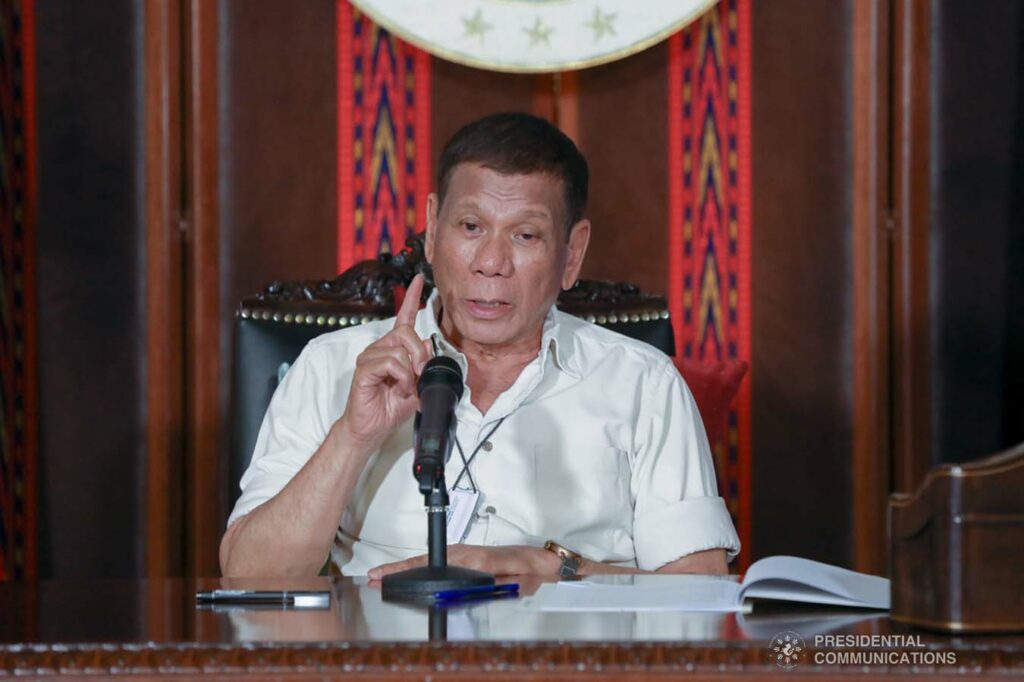
Despite a largely adversarial media and the many protests from militant groups on how the government is conducting its affairs in the time of pandemic, including the occasional critical reminders from the Vice President, the polls indicate that many Filipinos approve of what the government has done.
It seems that Filipinos are very satisfied with how Pres. Rodrigo Duterte has managed the COVID-19 pandemic.
A poll conducted by Pulse Asia from Sept. 14 to 20 showed that 91% of Filipinos were satisfied with his performance despite eight months of various types of lockdowns.
Only 5 percent disapproved of his performance, while 5 percent were undecided. His trust rating went up by 8 percentage points to 91%.
The September results reinforced other polls conducted in 2020.
Results of Publicus 2020 Pahayag SONA survey on August 1-11 showed that the Duterte government received the highest total approval scores on providing technical-vocational and tertiary education (75.27%), providing quality primary and secondary education (74.8%), and responding to natural disasters (73.74%).
The current administration also posted high approval ratings on taking care of overseas Filipino workers (70.87%), enhancing food security (70.74%), maintaining peace and order (70.2%), and helping the poor (70.06%).
Filipinos were also satisfied with the government’s commitment to promote tourism (69.87%), fight corruption (69.8%), expand the economy (68.87%), generating jobs (68.86%), and develop infrastructure (68.6%).
The poll likewsie showed that Filipinos appreciated the government’s performance when it comes to improving energy security (66.27%), curbing terrorism (65.4%), resolving issues concerning the communist movement (63.53%), improving internal relations (61.86%), and managing inflation (61.67%).
The government also earned good approval scores on maintaining sovereignty (58.13%) and promoting free speech (56.87%), Publicus noted.
In October, the Social Weather Stations (SWS) bared the results of a survey they conducted from Sept. 17-20, covering 1,249 respondents.
The poll showed that according to majority of Filipinos, there are three areas of the government’s COVID19 response that they find adequate.
These areas are: ensuring the public has enough information on how to fight COVID-19 (71%), ensuring there will be extensive contact tracing (67%), and ensuring there is affordable COVID-19 testing nationwide (54%).
SWS said, however, that when it comes to ensuring the provision of adequate help for people who lost their job and livelihood, only 44% believe government actions are adequate, 46% said they are inadequate, while 9% were undecided.


